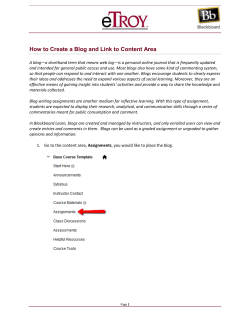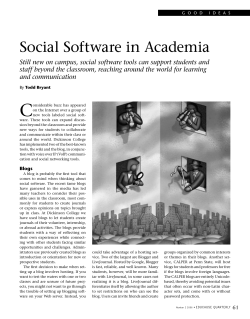
Be Fearless About Feedback 72
Be Fearless About Feedback 72 % of employees think their performance would improve with more feedback. 83 % of employees find recognition more rewarding than cash. This presents a tremendous opportunity for both managers and team members. While feedback on what we do well is gratifying, feedback on what we can do better helps us improve — it’s an essential ingredient in career growth. “Feedback is the breakfast of champions!” -Ken Blanchard Most employees say they don’t get enough feedback. Giving and getting feedback can be emotionally charged, inhibiting us from giving it and putting it into practice. Feedback is a learning and leading opportunity. By being fearless about feedback, we maximize career and team velocity. Try these three practices for fearless feedback: 1. Managers: Get over it! If you lead a team, regular feedback is a part of the job; giving no feedback is far worse than critical feedback. 50 % of managers fail to drive accountability and give constructive feedback for fear of being the “bad guy.” Not Giving Feedback? Your Team Isn’t Giving Their Best Receive Strength-Based Feedback Engaged Employees Receive Critical Feedback Disengaged Employees Receive No Feedback 57 % of employees prefer corrective feedback. They want to know how they can improve and where they’re not meeting expectations or their potential. It’s a disservice to withhold that information. 2. Team members: Make the most of it Getting good feedback is easy, but getting constructive feedback is golden! It’s a growth opportunity, not an indictment, so focus on applying rather than dissecting constructive feedback. Distinguish the message from the messenger or the messenger’s style; getting bogged down on how the message was delivered robs us of its benefit. Rather than refute the feedback, listen and look at it clinically for what can be learned. While it may not be completely accurate, harvest the wheat from the chaff to advance your skills and effectiveness. 3. Make feedback effective We don’t all need or want the same feedback — career stage, personality, skill levels, circumstances and age all affect the types of feedback we want and need. To make feedback most effective for the whole team, take these steps: Tailor the feedback to the person: 70 % 50 % of young employees’ learning happens on the job; focus on strengths feedback. of older employees tend to want more feedback than their younger counterparts. Constructive feedback helps them grow. Forget the “feedback sandwich.” Wrapping negative feedback in positive undermines trust and the value of positive feedback. Focus on the business outcomes and change needed. Make time for positive feedback. We’re all human; we operate at our best when we feel valued and our talents welcomed on the team. 5:1 ratio of positive to negative works best During feedback conversations, create space for both manager and team member to listen. The manager may not have all the facts, and the team member may have insight on where the manager can help. Gather feedback on how you give or get feedback. It’s great data on how you can maximize your learning and leading opportunities, and the practice strips away emotions that inhibit performance candor. It's an ongoing conversation. Make feedback regular, not rare! Try “feedback Fridays” as a practice for the whole team. 70 % of employees say praise from peers is highly motivating. Want to institutionalize feedback to increase your team's velocity? Try Workboard — a free, fun way to trigger and give frequent feedback. You'll have feedback aligned with team goals, priorities, work and progress for a context-rich conversation. Get Workboard for your team FREE at www.workboard.com Every challenge is a teacher. Be a fast learner. Sources http://businessjournal.gallup.com/content/147383/secret-higher-performance.aspx#2 http://blogs.hbr.org/2014/07/you-cant-be-a-great-manager-if-youre-not-a-good-coach/ http://businessjournal.gallup.com/content/124214/driving-engagement-focusing-strengths.aspx#2 http://businessjournal.gallup.com/content/28270/Fourth-Element-Great-Managing.aspx#2 http://blogs.hbr.org/2009/04/feedback-that-works/ http://blogs.hbr.org/2013/01/sometimes-negative-feedback-is/ http://www.mckinsey.com/insights/organization/motivating_people_getting_beyond_money http://blogs.hbr.org/2014/01/your-employees-want-the-negative-feedback-you-hate-to-give/
© Copyright 2025





















